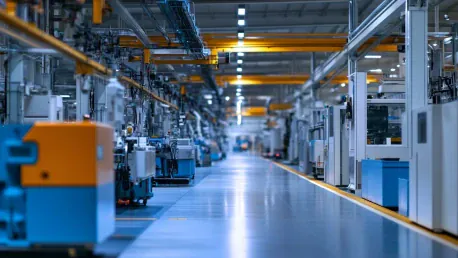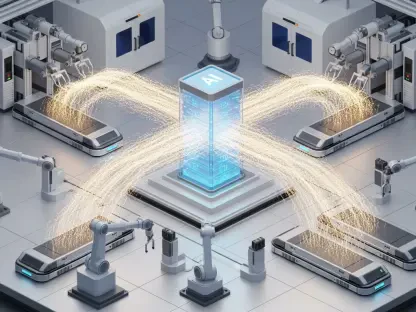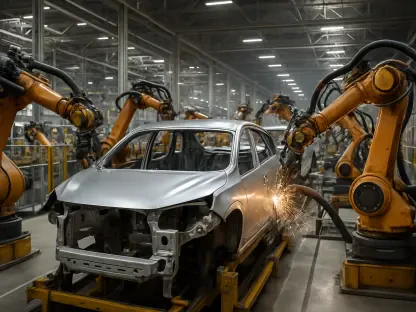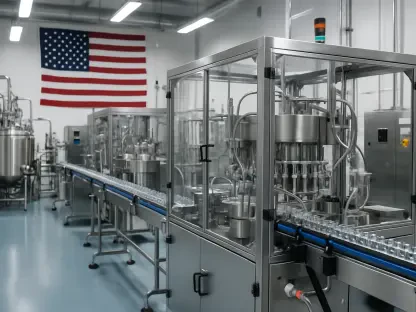Smart factories are transforming the manufacturing industry, leveraging cutting-edge technologies such as Artificial Intelligence (AI) and Customer Relationship Management (CRM) systems. At the core of this transformation is the seamless collaboration between human workers and AI systems, driving unprecedented levels of efficiency and innovation. The integration of AI and CRM systems in smart factories enables manufacturers to anticipate challenges, optimize performance, and enhance productivity through real-time data analysis. By harnessing the power of these advanced technologies, manufacturers can shift from reactive decision-making to a more proactive approach, thereby ensuring sustained operational excellence and competitiveness in the global market.
The concept of smart factories embodies the convergence of digital, physical, and biological systems, creating an ecosystem where human intelligence and AI work in harmony. This integration facilitates a holistic understanding of manufacturing processes, enabling real-time monitoring and predictive insights that ensure smooth and efficient operations. The focus on predictive maintenance, in particular, highlights how AI and CRM systems together can significantly reduce operational disruptions. By identifying potential issues before they escalate, manufacturers can maintain continuous production, minimizing downtime and reducing costs. This transformative impact underscores the critical role of AI-powered CRM systems in shaping the future of manufacturing.
The Role of Human-AI Collaboration in Smart Factories
Smart factories represent a watershed moment in manufacturing, marked by the convergence of digital, physical, and biological systems. By integrating AI and CRM, manufacturers move beyond reactive decision-making toward proactive strategies. This integration allows vast amounts of real-time data to be leveraged, anticipating challenges and optimizing performance. For instance, predictive maintenance powered by AI enables real-time monitoring of equipment health, preventing costly breakdowns and ensuring continuous operations. The ability to preemptively address potential faults not only saves time and resources but also enhances the overall efficiency of manufacturing processes.
Human-AI collaboration is pivotal in these smart factories. Humans bring intuition and expertise, while AI offers speed and precision in data processing. This synergy creates an environment where human workers can focus on high-value tasks, supported by AI-driven insights. Together, they achieve greater efficiency and innovation, setting the stage for a new era in manufacturing. The mutual reliance between human intuition and AI-driven analytics enables a more adaptive and responsive production environment. With AI taking over routine data analysis and prediction tasks, human workers are freed to engage in more complex problem-solving and innovation-driven activities, leading to a dynamic and progressive manufacturing landscape.
Driving Predictive Maintenance through AI-Powered CRM
AI-powered CRM systems revolutionize asset management within factories through predictive maintenance. By analyzing sensor data and maintenance logs, AI algorithms predict potential machine failures. This predictive capability allows companies to schedule maintenance activities optimally, reducing unplanned downtime and associated costs. Ultimately, it translates to significant cost savings and improved operational efficiency. The precision of AI-driven predictions ensures that maintenance efforts are targeted and timely, preventing unexpected disruptions and prolonging the lifespan of critical machinery.
Beyond machinery, AI-powered CRMs offer comprehensive insights into equipment performance and production line efficiency. This level of predictive acumen helps firms reduce operational disruptions significantly, enhancing the overall equipment effectiveness (OEE). As a result, manufacturers can maintain a smooth and continuous production flow, addressing issues before they escalate. The ability to foresee and mitigate potential operational hiccups through AI insights allows for a more streamlined manufacturing process, where resources are utilized efficiently and productivity is consistently high. This paradigm shift from reactive to predictive maintenance marks a significant leap towards more intelligent and resilient factory operations.
Revolutionizing Inventory Management with AI-Infused Systems
AI-powered CRM systems are making significant advancements in inventory management. Predictive demand forecasting enabled by AI allows manufacturers to accurately predict future demand and optimize stock levels. This capability helps avoid risks associated with overstocking or stockouts, reducing inventory carrying costs and ensuring efficient procurement planning. The integration of predictive analytics into inventory management processes allows for a more agile and responsive approach, where stock levels are always aligned with market demands.
Real-time inventory tracking further contributes to maintaining accurate stock records, enhancing customer satisfaction, and minimizing wastage. The data-driven approach enables shorter lead times, ensuring timely product delivery to customers. In an increasingly fast-paced global market, such efficiency is a critical competitive advantage. The continuous monitoring and analysis of inventory levels, facilitated by AI-powered CRMs, ensure that manufacturers can swiftly adapt to changes in consumer demand, thereby maintaining optimal stock levels and preventing disruptions in the supply chain. This proactive approach to inventory management underscores the transformative potential of AI-driven insights in enhancing operational efficiency and customer satisfaction.
Fostering Continuous Improvement and Innovation
AI-powered CRM systems are instrumental in fostering a culture of continuous improvement and innovation within smart factories. These systems facilitate real-time analysis of production data, empowering workers to make data-driven decisions that continuously enhance processes. This, in turn, boosts productivity and improves product quality. The constant feedback loop provided by AI insights enables a dynamic environment where continuous improvement becomes ingrained in the operational fabric of the factory.
The collaboration between humans and AI is essential in this context. AI-driven insights can create a more engaged workforce. Employees equipped with these insights can take ownership, make informed decisions, and collaborate effectively. This results in more efficient, agile factory operations, adaptable to changing market demands. The empowerment of human workers through AI insights fosters a culture of innovation, where employees are encouraged to explore new ideas and approaches, driving the factory towards sustained growth and competitiveness. The symbiotic relationship between human ingenuity and AI precision acts as a catalyst for continuous improvement and strategic innovation, ensuring that smart factories remain at the forefront of technological advancements.
Overcoming Challenges in Human-AI Collaboration
Despite the numerous benefits, challenges remain in human-AI collaboration. Ensuring data quality and seamless integration is a significant hurdle since AI systems rely heavily on accurate and complete data for reliable predictions. Data silos, inconsistencies, and integration issues with legacy systems can impair the effectiveness of AI-powered CRMs. To overcome these challenges, robust data governance frameworks are essential. These frameworks address issues related to data quality, ensuring a seamless flow of information for optimal performance.
Additionally, workforce training and change management are crucial for the successful implementation of AI-powered systems. Employees must adapt to new roles and skills to collaborate effectively with intelligent machines. Comprehensive training programs and ongoing learning are essential for success in the Industry 4.0 era. As factories undergo technological advancements, a well-informed and adaptable workforce is key to leveraging the full potential of AI and CRM systems. By investing in continuous education and skill development, manufacturers can ensure that their employees are equipped to navigate the complexities of a smart factory environment, fostering a seamless and productive human-AI collaboration.
The Future of AI and CRM in Manufacturing
Smart factories are revolutionizing the manufacturing industry by using advanced technologies like Artificial Intelligence (AI) and Customer Relationship Management (CRM) systems. At the heart of this change is the efficient collaboration between human workers and AI, leading to remarkable increases in efficiency and innovation. By integrating AI and CRM systems, smart factories can anticipate challenges, optimize performance, and boost productivity using real-time data analysis. This allows manufacturers to move from making decisions based on past events to a more forward-thinking approach, ensuring continued operational excellence and competitiveness worldwide.
The idea of smart factories blends digital, physical, and biological systems, creating an ecosystem where human intelligence and AI collaborate. This integration supports a comprehensive understanding of manufacturing processes, with real-time monitoring and predictive insights ensuring smooth operations. Predictive maintenance, in particular, shows how AI and CRM systems can help reduce disruptions. By spotting potential problems before they arise, manufacturers can keep production running smoothly, reduce downtime, and cut costs. This change highlights the essential role of AI-driven CRM systems in the future of manufacturing.









